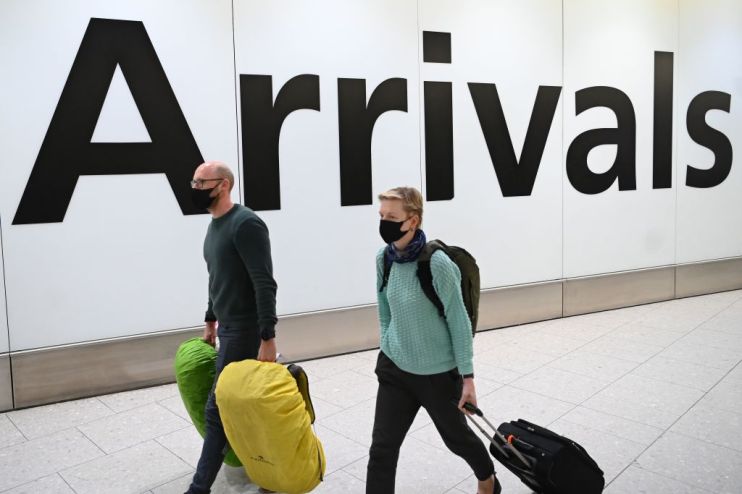FTSE 100 stumbles as coronavirus spreads to the UK

Britain’s FTSE 100 has fallen sharply after two people tested positive for coronavirus in the UK and the pound rose following the Bank of England’s decision to hold interest rates yesterday.
England’s chief medical officer said the two people were being treated at a specialist centre in Newcastle after falling ill in York.
Professor Chris Whitty said the cases should not cause undue alarm because “for the majority of those who contract this virus, the outcome will be a mild respiratory illness from which they will recover”.
European stock markets also fell after data showed the Eurozone grew at its slowest rate in six years in 2019. US shares followed them downwards.
The FTSE was down 1.3 per cent by 3.45pm. Germany’s Dax was 1.1 per cent lower, France’s CAC 40 was down one per cent, and the pan-European Euronext 100 had shed 0.9 per cent.
In the US, the S&P 500 had dropped 1.1 per cent, the Dow Jones was down 1.3 per cent, and the Nasdaq was 0.9 per cent lower.
The coronavirus outbreak has now claimed 213 lives and infected 9,800 people globally, the vast majority in China, where it began.
Much of China is in lockdown as it battles the virus, leading investors to fear that it will damage the already relatively weak economy.
Craig Erlam, senior market analyst at currency platform Oanda, said: “The worrying thing is how much worse the [deaths and infections] numbers could look when the markets reopen next week, given just how rapidly they’re rising.”
Simon MacAdam, global economist at consultancy Capital Economics, said: “Given China’s prominent position in global supply chains and some financial assets’ stretched valuations, there could be global economic fallout if factory closures are extended further and the market sell-off deepens.”
Bank of England pushes up pound
The FTSE 100 was also pushed down by a higher pound, driven by the Bank of England decision. Higher interest rates cause more demand for a currency.
“For sterling, gains were held on to overnight after the BoE’s highly divisive decision, which saw monetary policy committee [MPC] members vote 7-2 in favour of a rate hold,” said Bethel Loh, macro strategist at trading platform Think Markets.
A higher pound lowers the value of the overseas earnings of FTSE 100 firms, weighing on the index.
Connor Campbell, financial analyst at trading platform Spreadex, said sterling may have been “expressing some relief that Britain can move onto the more important trade negotiations part of Brexit”.
The UK will officially leave the EU tonight at 11pm after three years of wrangling over the outcome of the Brexit referendum.
Investors are broadly grateful for some certainty but worry about the next phase of negotiations between the UK and the EU. The two sides have until the end of 2020 to strike a “deep free-trade agreement”, which many have doubted is possible.